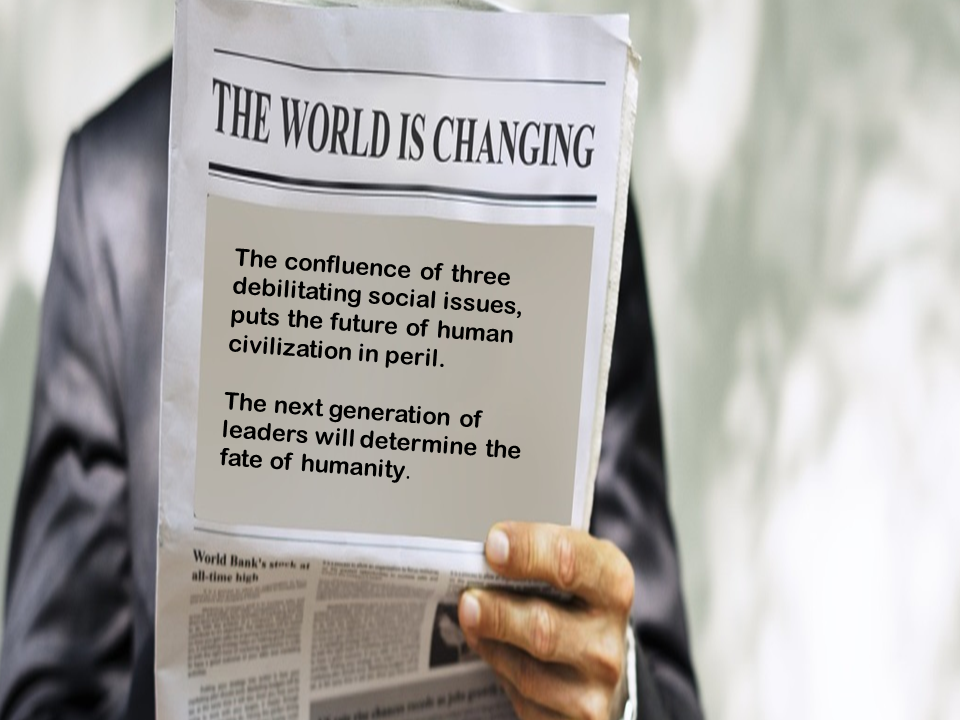PROGRAMS & SERVICES

Systemic Change
Systemic Change is a structured process guided by a sequence of analytic procedures. It empowers Change Agents to lead transformation initiatives effectively. By applying sequence of exercises, Systemic Change aims to: Define and Confirm the Need for Change: This initial step involves a thorough examination of the current state of affairs. It requires a deep understanding of the challenges at hand and a clear recognition of the urgency and scope of the transformation project. Identify Root Causes: Systemic Change demands a rigorous analysis to identify the fundamental causes of obstacles and challenges. This step is critical in ensuring that the transformation addresses the underlying issues rather than merely surface-level symptoms. Select the Best Solution Options: With a clear understanding of the challenges and their root causes, Change Agents can then identify the most appropriate solutions. These solutions must be aligned with the organization's overarching objectives and the broader goals of sustainability and social justice. Develop and Commit to a Transformation Plan: A well-defined plan is the blueprint for any successful transformation. It outlines the strategies, activities, roles, responsibilities, and timelines necessary for the execution of the change initiative. Implement the Transformation Plan: Execution is where the transformation comes to life. This phase demands precise coordination, effective communication, and a keen eye for detail. Change Agents, along with designated Change Leaders, oversee the execution of projects and programs critical to achieving the transformation objectives.

Transformation Leadership
In today's interconnected world, leaders must grapple with complexity. They navigate through intricate challenges, recognizing that solutions are rarely straightforward. The most pressing challenge of our era lies in the dissonance between the levels of power wielded by global leaders and the corresponding levels of consciousness they embody. Far too often, individuals with profound global influence operate from a realm of self-interest and tribalism. It is a predicament that reverberates across nations and societies, underscoring the imperative for a paradigm shift in leadership. Great leadership today is characterized by a profound sense of service. Leaders understand that their role is not about personal glory, but about facilitating the growth and success of the collective. They lead with a sense of responsibility towards the greater good.. Our Program ensures that participants understand the critical principles, characteristics and considerations that give rise to great leadership.

Spiritual Intelligence
Stephen Covey described Spiritual Intelligence as the most important of the 4 Human Intelligences: Mental, Physical, Emotional and Spiritual; because it serves as a guide for the other three. The benefits of Emotional Intelligence development has been recognized and adopted by public and private sector organizations for decades. However, Spiritual Intelligence is a taboo subject; because it would for leaders to consider the one question they want to avoid, “Is this the right thing to do”. Where developed Emotional Intelligence stops us from stupid things; developed Spiritual Intelligence stops us from doing evil or unethical things. We must integrate Spiritual Intelligence development in our educational and training programs; if we are to reach the level of consciousness required to resolve our global existential threats we currently face.

Conflict Management
Conflict is a natural, and common part of human interaction. Conflict if managed well can be beneficial to relationships and society. However, if handled poorly conflict can escalate to disputes, fights and wars. Our program walks through the life of a conflict and all the factors that cause escalation. We also cover how conflict is exploited for profit or personal gain; and how to effectively manage or defuse conflict.
